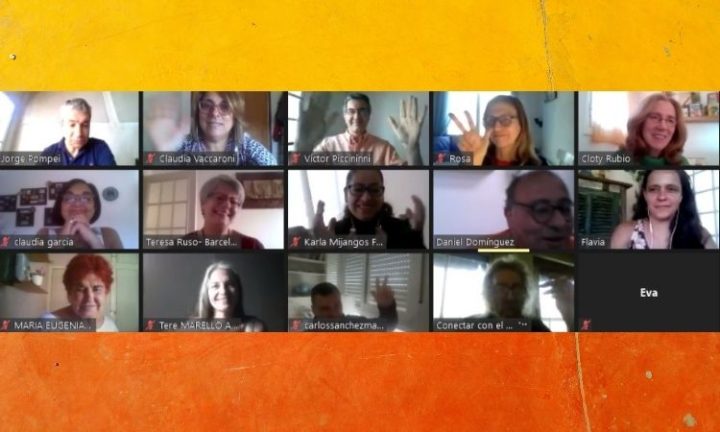Last Sunday, REHUNO Health participated in the 5th Latin American Humanist Forum with the panel on “building humanistic views in health”, moderated by journalist Cloty Rubio, from Barcelona.
The event included six presentations from professionals in different areas of health: Nursing, Mental health, Labor and birth, Death and end of life, Indigenous health and Comprehensive health.
Public health specialist Jorge Pompei (Argentina) highlighted that it is necessary to understand the human being as a multidimensional being where the biological, psychological and spiritual form a structural unit with the natural and social environment, meaning health will be the result of a dynamic balance in all these dimensions. On the topic of discussion, he explained that a humanist view does not stem from illness or death, but is necessary to build on health, working to consolidate it and make it grow.
Regarding indigenous care and self-care, Karla Mijangos Fuentes (Mexico) began her speech with two reflections: Can health be thought of without defining the concept of disease? Is it possible to think of the definition of health based on traditions of knowledge other than the biomedical paradigm? The feminist nurse and social scientist says that it is in dialogue with a Zapotec community in Quialana where she is finding the answer to her questions – in this community, health is synonymous with freedom, happiness, celebration, feeling and being well and without worries.
Labour and birth were themes addressed by the midwife and acupuncturist Flavia Estevan (Brazil). She explained that labor and birth are sacred and sublime, and we must work towards the ideal of all births being safe and respectful experiences. She also spoke of the importance of ensuring access to sexual and reproductive rights for all people in the world, thereby ensuring that all births are desired.
Claudia Vaccaroni (Argentina), a nurse and specialist in Social and Community Medicine, explained that “being a nurse is something that is externalized in the experiences of caring for people, which means doing for the person what she is not able to do for herself in order to take her own path, grow, mature and find herself”.
In the field of mental health, Claudia García (Argentina) spoke on the theme of madness and mental suffering. The psychologist and university education specialist said that in the past, madness was isolated, closed, institutionalized, monitored and punished, and political bodies locked. One change was the creation of the category of mentally ill people through different international structures that grant the subject the category of citizen through the implementation of Human Rights.
Victor Piccininni (Argentina) ended the day with several reflections on death and the end of life. He explained that the end of (physical) life and death implies a paradox. While saying goodbye to the body and finalizing the story of our life with affection and love, we also witness the possibility of spiritual birth, opening up the possibility of transcendence. With the intention of proposing steps towards a new humanizing situation in the face of death, Victor highlighted: “If we act, we will help to transform the mental suffering of those moments through compassion and reconciliation, changing the attachment to the body in surrender and gratitude, and the coldness of death in a soft accompaniment to the possibility of spiritual transcendence”.
To see the full event, visit: https://www.facebook.com/rehunosalud/
Translation by Madalena Traducciones from the voluntary Pressenza translation team. We are looking for volunteers!






